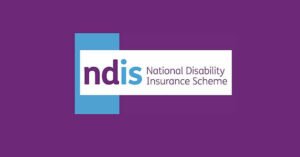The National Disability Insurance Scheme (NDIS) is a scheme of the Australian Government that provides funding for costs associated with disability. The scheme was legislated in 2013 and went into full operation in 2020.

Purpose and Coverage
- The NDIS entitles people with a “permanent and significant” disability (under the age of 65) to full funding for any “reasonable and necessary” support needs related to their disability. This funding is allocated to the individual, allowing them or their guardian to choose which providers supply the funded goods and services.
READ ALSO: Top 10 Tips To Buying Car Insurance Online in 2024
Who Is Eligible for the NDIS?
To be eligible for the NDIS, you must meet certain criteria. The primary requirements are that you must have a permanent disability that significantly impacts your ability to participate in everyday activities, you must be under 65 years of age, and you must be an Australian citizen or permanent resident.
1. Permanent Disability
A permanent disability refers to an impairment that is lifelong or likely to be lifelong. This includes physical, intellectual, neurological, sensory, or psychosocial disabilities. Your disability must also substantially limit your capacity to participate in activities or perform tasks. The NDIS considers how your disability impacts mobility, communication, self-care, relationships, learning, employment, and community participation.
2. Age Requirement
To qualify for the NDIS, you must be under 65 years of age when you first access the scheme. Once you turn 65, you will transition to the aged care system. However, if you are already an NDIS participant, you can remain in the scheme after turning 65. Participants over 65 can also request additional supports to assist with age-related conditions through their NDIS plan review.
3. Residency Status
You must be an Australian citizen, permanent resident, or hold a protected special category visa to access the NDIS. Temporary visa holders and visitors are not eligible for the scheme. Applicants must provide evidence of their residency status, such as a birth certificate, passport, or visa.
In summary, to be eligible for the NDIS, you must have a permanent and significant disability, be under 65 years of age, and be an Australian citizen or permanent resident. If you meet these criteria, you may be entitled to funding and services to help increase your independence, inclusion, and participation in the community.
How the NDIS Works: Funding and Support
The NDIS is funded by the Federal Government and aims to provide necessary care and support for Australians with permanent and significant disability. The NDIS provides funding for individuals based on their specific needs and goals outlined in personalized plans.
NDIS Plans
NDIS participants work with NDIS planners to develop personalized plans that outline their goals and the funding required to achieve them. Plans specify the individual’s needs, goals, and objectives as well as the reasonable and necessary supports to be funded by the NDIS. Plans are reviewed regularly to ensure funding continues to meet the participant’s needs.
Funding and Payments
The NDIS provides funding for supports and services to implement participants’ plans. Funding may be managed in several ways: NDIS-managed, plan-managed, or self-managed. NDIS-managed funds are paid directly to providers by the NDIS. Plan-managed funds allow participants to choose providers who will then bill the NDIS. Self-managed funds are paid directly to participants, allowing them full choice and control over how funds are spent.
Types of Support
The NDIS funds many types of support for participants, including:
- Daily personal activities: Help with self-care, communication, and mobility
- Social participation: Help engaging in community, social and recreational activities
- Home modifications: Changes to the home environment to improve accessibility and safety
- Assistive technologies: Equipment and devices to aid mobility, communication and daily living
- Vehicle modifications: Changes to vehicles to enable driving or transportation
- Capacity building: Skills training to increase independence and community involvement
The NDIS aims to provide participants with flexibility and choice over their care and empower them to live more independently within their communities. With the necessary supports in place, the NDIS helps Australians with disability achieve their goals and live fulfilling lives.
Conclusion
In summary, the National Disability Insurance Scheme is a vital support system for Australians living with disabilities. By understanding how it works and who is eligible, you can determine if it may benefit you or a loved one. With the NDIS on your side, a brighter future awaits where you can access the reasonable and necessary supports to increase your independence and pursue your goals. While the scheme has experienced growing pains, its vision remains true – to empower those with disabilities to live their best lives. If you or someone you love could gain from NDIS assistance, take the first step and explore how to apply. A community that cares for its most vulnerable makes us all stronger.






